"The functional ecology of mesophotic sponges"
Tuesday, February 17th, 2026
12:00 - 1:00 pm PST
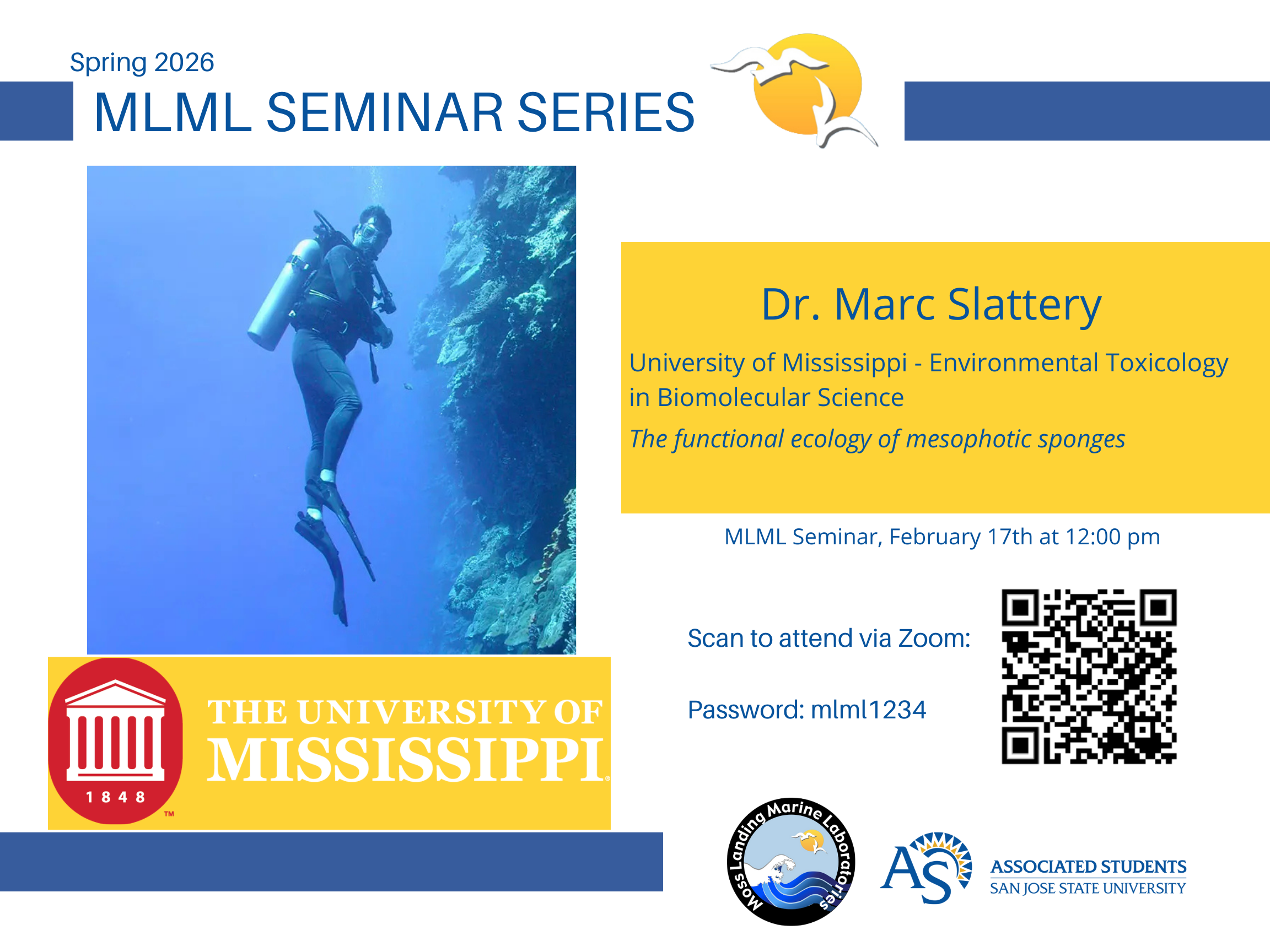
"The functional ecology of mesophotic sponges"
Tuesday, February 17th, 2026
12:00 - 1:00 pm PST

"Focusing on how to develop graduate and undergraduate research opportunities: connecting with undergraduate students at CSUMB through research programs"
Tuesday, February 10th, 2026
12:00 - 1:00 pm PST
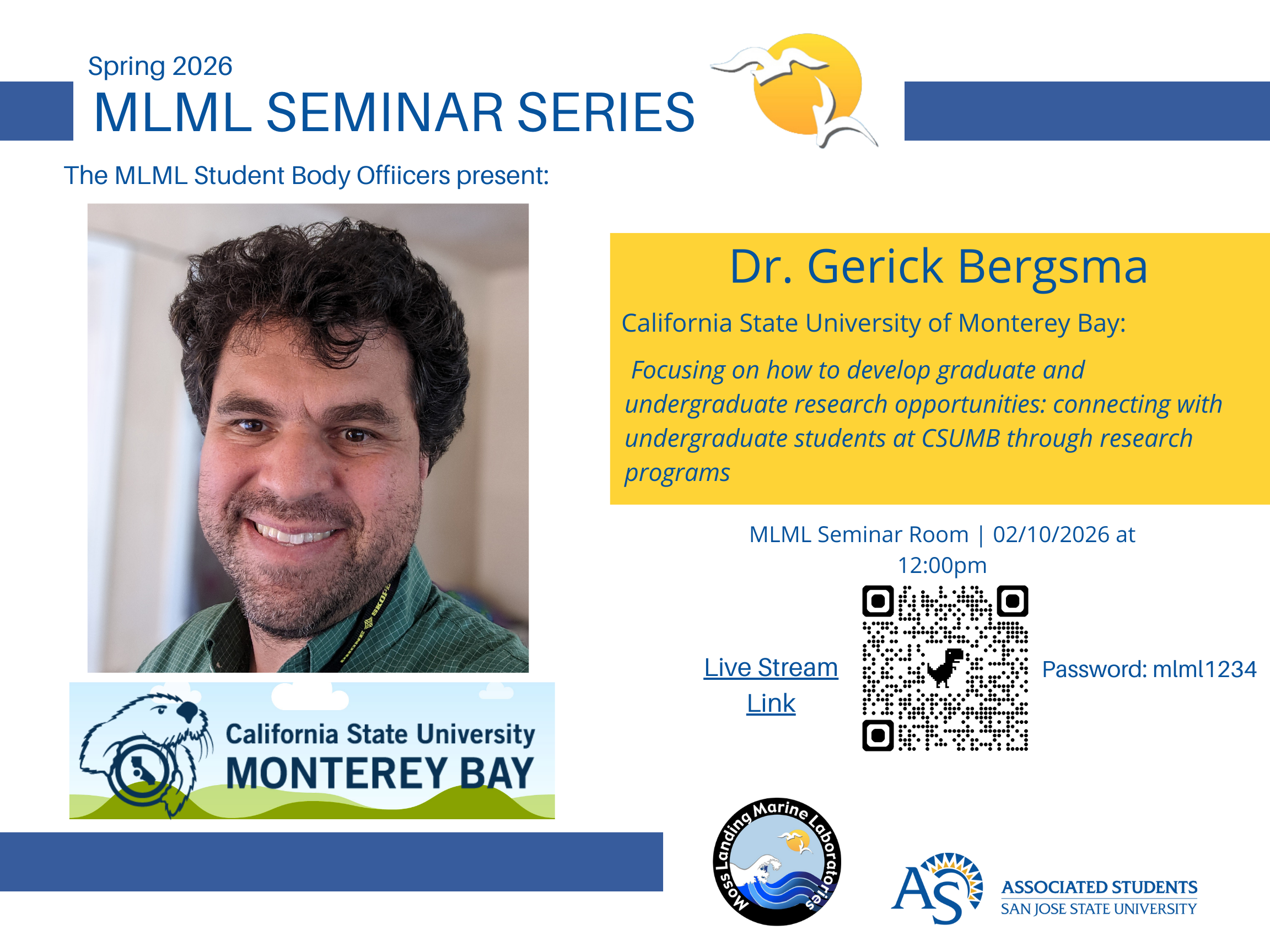
"Collaborating for Conservation and Research in the Gulf of California: The 100-Year Story of El Pardito"
Tuesday, February 3rd, 2026
12:00 - 1:00 pm PST
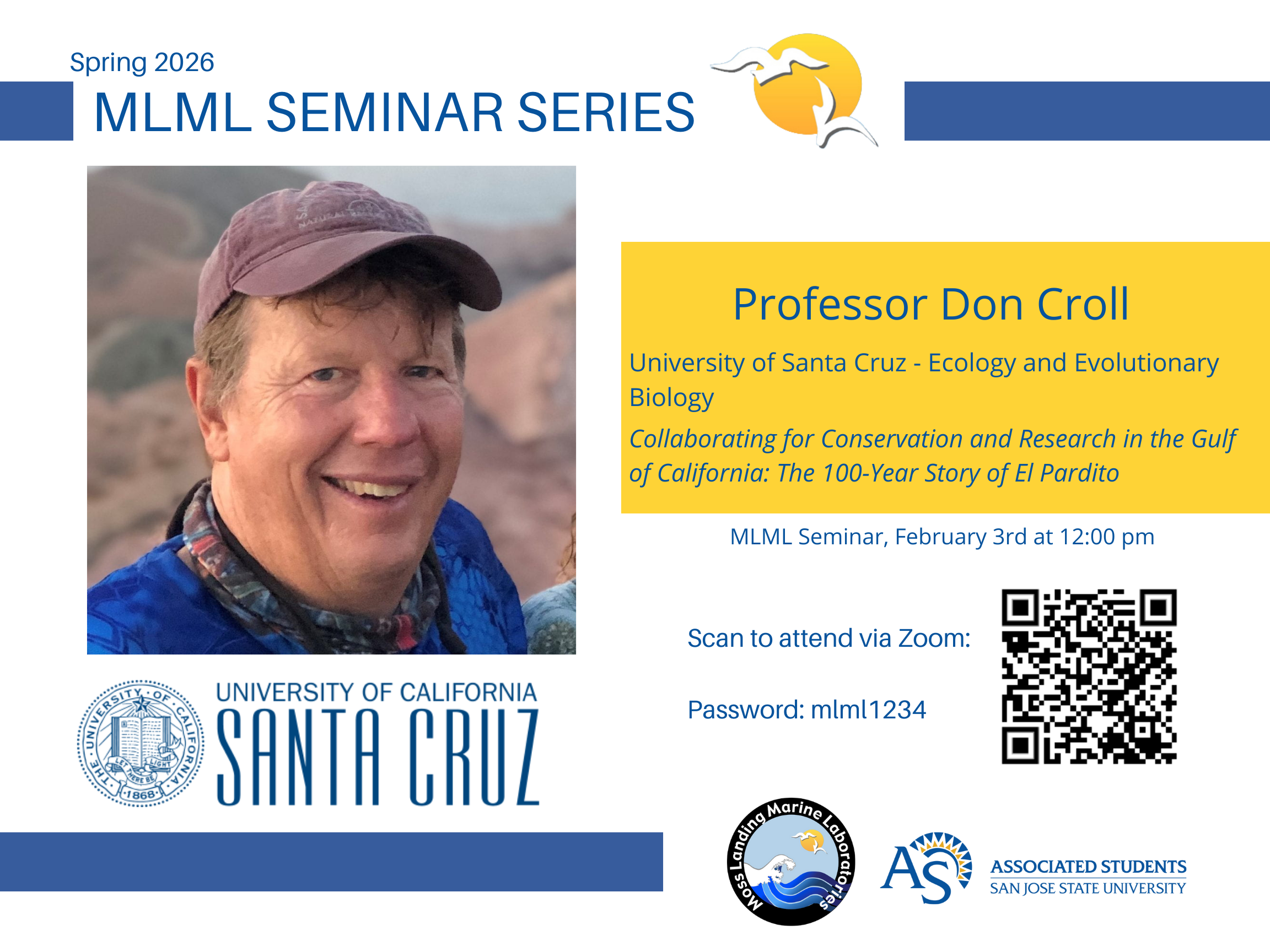
Dr. Monique Messié | Monterey Bay Aquarium Research Institute
Presenting: "Coupling and decoupling between upwelling and biological response in Eastern Boundary Upwelling Systems"
Hosted by: Physical Oceanography Lab
MLML Seminar | November 4th, 2025 at 4pm (PDT)
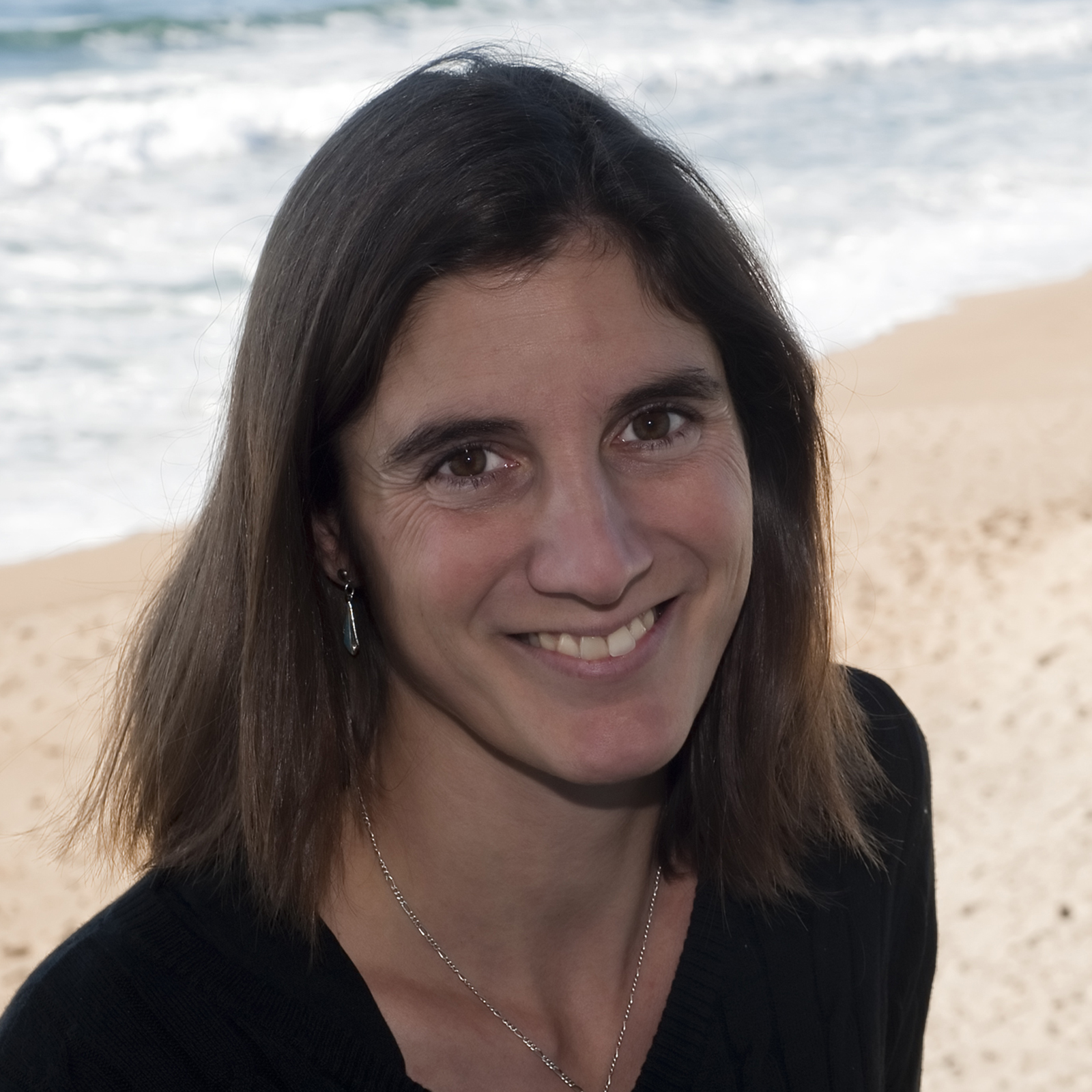
Dr. Monique Messié
Dr. Aaron Carlisle | University of Delaware
Presenting: "New biologging approaches for studying marine species and ecosystems"
Hosted by: Ichthyology Lab
MLML Seminar | October 7th, 2025 at 4pm (PDT)
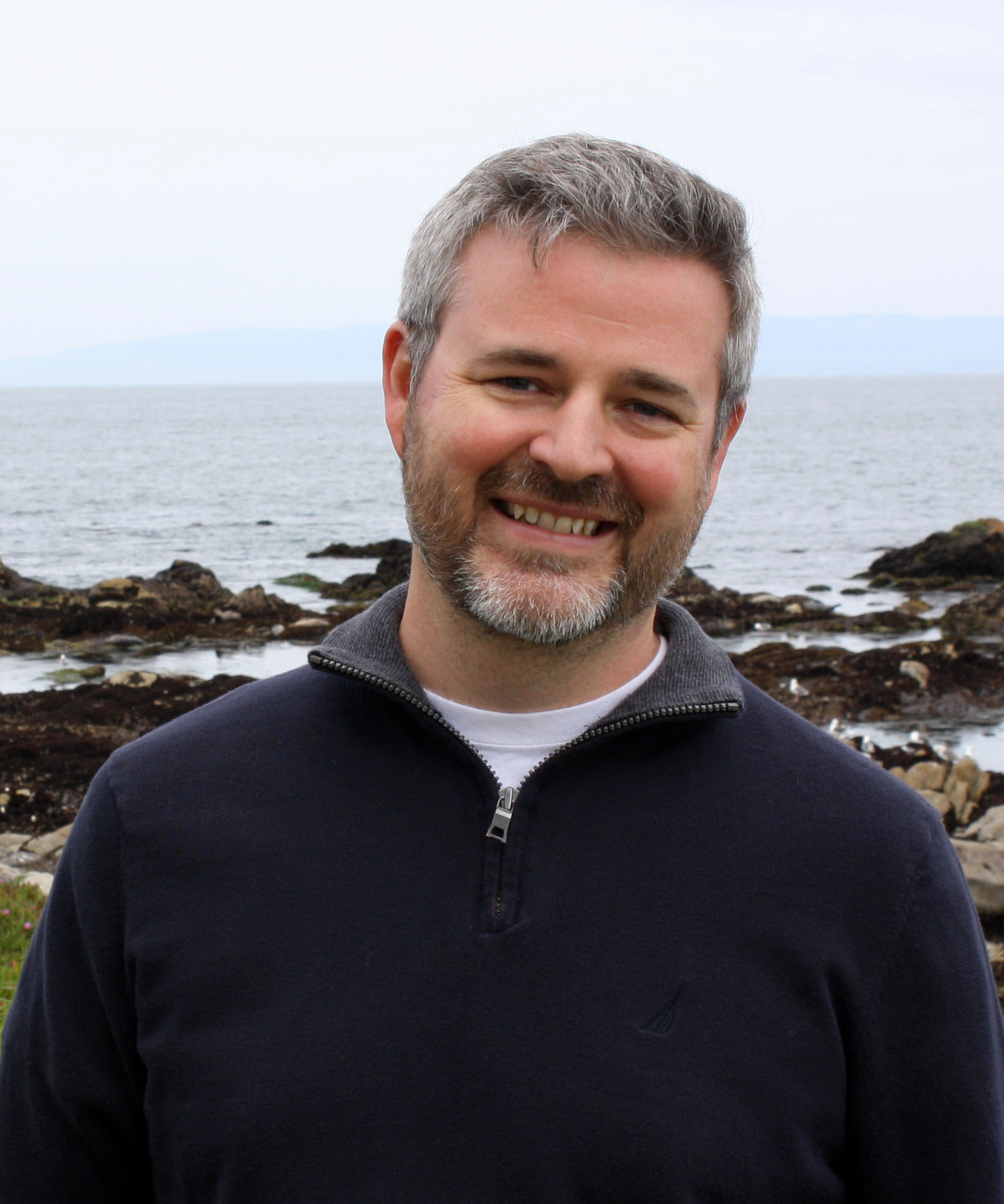
New biologging approaches for studying marine species and ecosystems
Biologging approaches, or the use of animal-borne electronic tags for logging and/or relaying of biological and environmental data, are advancing at a rapid pace, providing new ways for studying marine species and their environment. Our research group, the Trophic and Spatial Ecology Research Lab (TRASER) at the University of Delaware, is working to advance biologging technology to improve our ability to obtain in situ data on the behavior, physiology, and habitats of mobile marine species to improve our understanding of their ecology as well as foster improved management of marine ecosystems in a rapidly changing ocean. In this seminar, I will provide an overview of our research in developing the use of sharks as ocean observing platforms that will improve our ability to obtain near-real time oceanographic data from these highly mobile species, improving the type and scale of data available to various oceanographic models. I will also discuss our ongoing effort to integrate biologging tags with lab-derived estimates of physiological parameters with high resolution behavioral and environmental data to understand how the physiology of an organism interacts with the environment to influence its distribution and ecology across spatial and temporal scales.
Dr. Aaron Carlisle
Dr. Manny Gabet | San Jose State University
Presenting: "The (Real) Geologic History of the Stanislaus Table Mountains and Yosemite Valley"
Hosted by: Geological Oceanography Lab
MLML Seminar | September 30th, 2025 at 4pm (PDT)
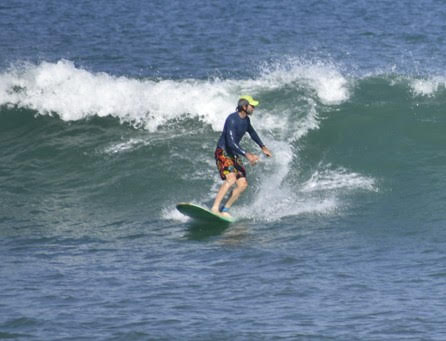
The (Real) Geologic History of the Stanislaus Table Mountains and Yosemite Valley
In 1865, J.D. Whitney published a hypothesis, originally proposed by his colleague Ian Brewer, that the Stanislaus Table Mountains were a form of ‘inverted topography.’ According to this theory, a 10-million year old lava flow had travelled down a mountain canyon and solidified along the river bed. Over time, the adjacent valley walls had eroded down, transforming the lava-capped river bed into a series of ridges that are now recognized as the table mountains. Furthermore, Whitney reasoned that this much erosion could only have been accomplished as a result of tilting and uplift of the Sierra Nevada. Whitney’s explanation was the genesis for the dominant theory that the Sierra Nevada is a relatively young range, having popped up only in the past 5-10 million years. Similarly, the initial formation of Yosemite Valley has also been attributed to recent uplift. In my talk, I will present evidence demonstrating that the Stanislaus River watershed has not undergone any dramatic transformations and that, instead, it looks very much like it did 30-40 million years ago. In addition, I will present evidence showing that Yosemite Valley was initially cut by a river draining a large volcanic plain that once buried the crest of the northern Sierra. Both of these studies, as well as others, contribute to a growing body of evidence that the Sierra Nevada is an ancient range, rising up at least ~40 million years ago.
Dr. Manny Gabet
Dr. Dimitris Menemenlis | Moss Landing Marine Labs, SJSURF
Presenting: "Ocean fronts, eddies, and internal waves in numerical models and SWOT"
Hosted by: Physical Oceanography Lab
MLML Seminar | September 23rd, 2025 at 4pm (PDT)
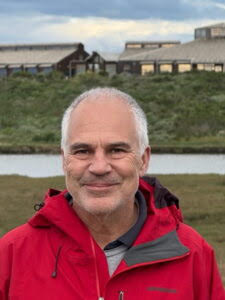
The ocean is the climate's largest reservoir of heat, freshwater, and carbon. Therefore, in order to understand and predict the impact of natural and anthropogenic perturbations on the climate system, we need to understand and predict the exchange of heat, freshwater, carbon, and other properties between the global ocean and the atmosphere. The driving hypothesis of my talk is that submesoscale ocean motions (<50 km), both balanced and unbalanced, play a key role in air-sea exchanges and vertical property transports in the ocean. To evaluate this hypothesis, we can use a set of tools that have become available during the past decade, namely (1) submesoscale and internal-wave admitting global-ocean simulations and (2) observations obtained by the Surface Water and Ocean Topography (SWOT) mission, which recently completed the second of its 3-year science orbit. I will describe some completed and ongoing studies that are using the aforementioned tools to study the impact of submesoscales on ocean circulation and climate.
Dr. Dimitris Menemenlis
Dr. Alexa Fredston | Ocean Sciences, UCSC
Presenting: "Beyond simple models of (marine) species on the move"
Hosted by: Ichthyology Lab
MLML Seminar | September 16th, 2025 at 4pm (PDT)
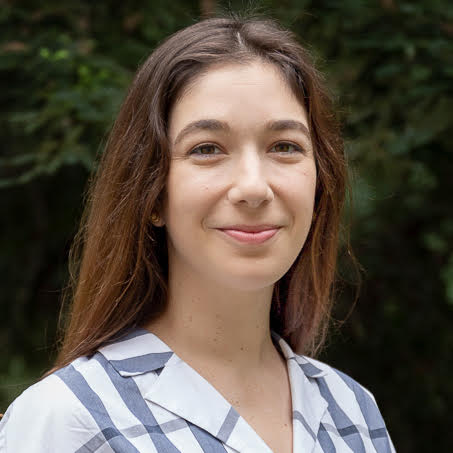
Beyond simple models of (marine) species on the move
Why are species found where they are and not elsewhere? What makes them move? Research in the Fredston Lab focuses on the fundamental drivers of species’ ranges, and the causes and consequences of climate-related range shifts. This talk will cover evidence for temperature driving the biogeography and abundance of demersal fishes across spatial and temporal scales; a range of projects aimed at disentangling multiple drivers of species’ ranges, with various methods and taxa; and methods and theory for understanding species on the move.
Dr. Alexa Fredston
Dr. Brooke Weigel | Stanford University's Hopkins Marine Station
presenting: "The ecology of kelp forests in a changing ocean: physiology, microbiomes & carbon cycling"
Hosted by: Research Diving Program
MLML Seminar | May 14th, 2025 at 4pm (PDT)
Watch the Live Stream here or here
=
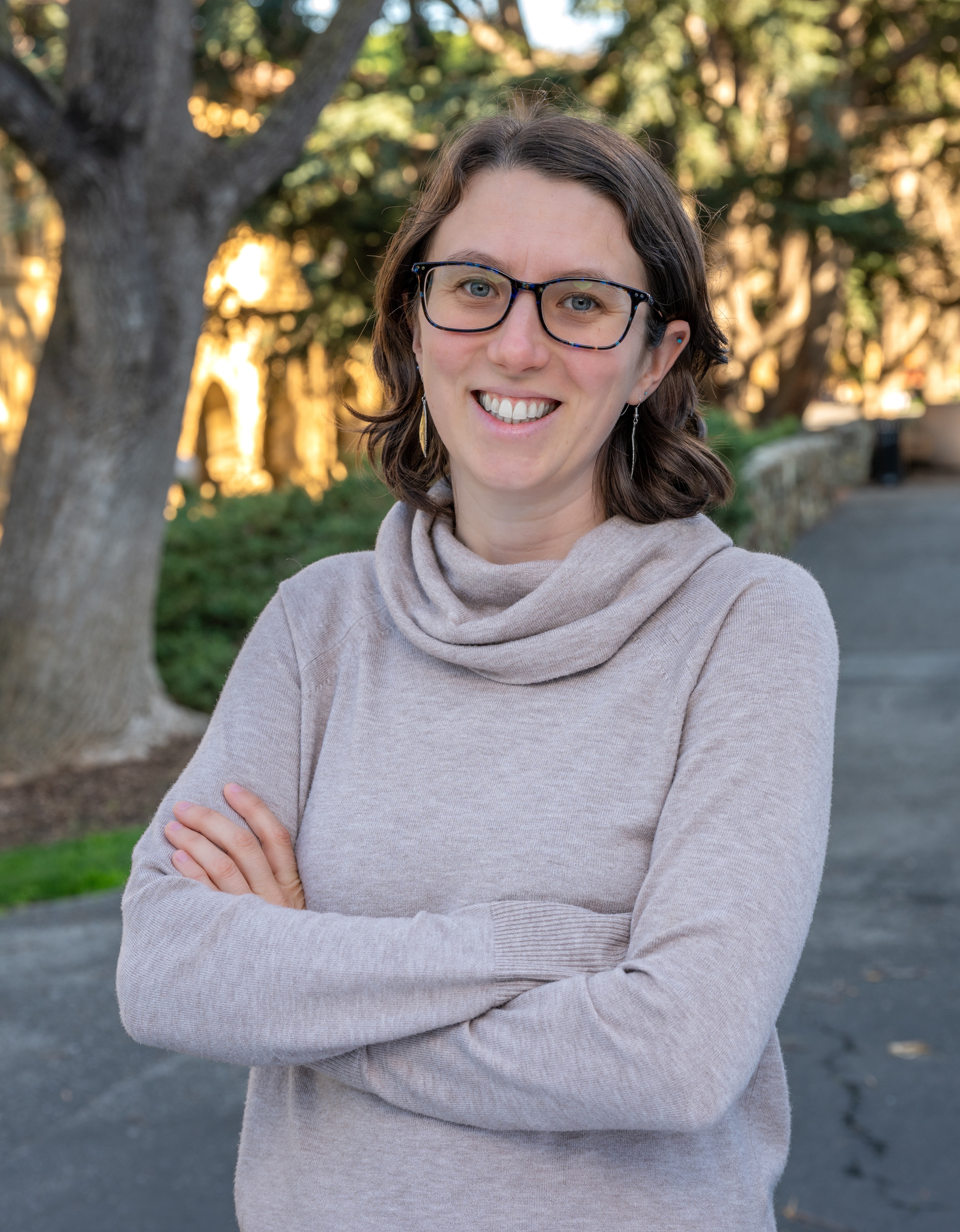
The ecology of kelp forests in a changing ocean: physiology, microbiomes & carbon cycling
Climate change is threatening kelp forests, with 40-60% of kelp forests in decline globally. My research has identified critical temperature thresholds for growth, survival, and reproduction across the life cycle of bull kelp, Nereocystis luetkeana. Kelp blades harbor abundant and diverse microbial communities, which are also impacted by ocean warming. We will dive into the world of kelp microbiomes, looking at the factors that shape the assembly and composition, micron-scale spatial structure, and functional role of the kelp microbiome. Finally, kelp play an important role in the global carbon cycle by creating highly productive underwater forests that contribute to carbon sequestration – we will discuss key knowledge gaps in our understanding of carbon cycling in kelp forests.
Dr. Brooke Weigel

